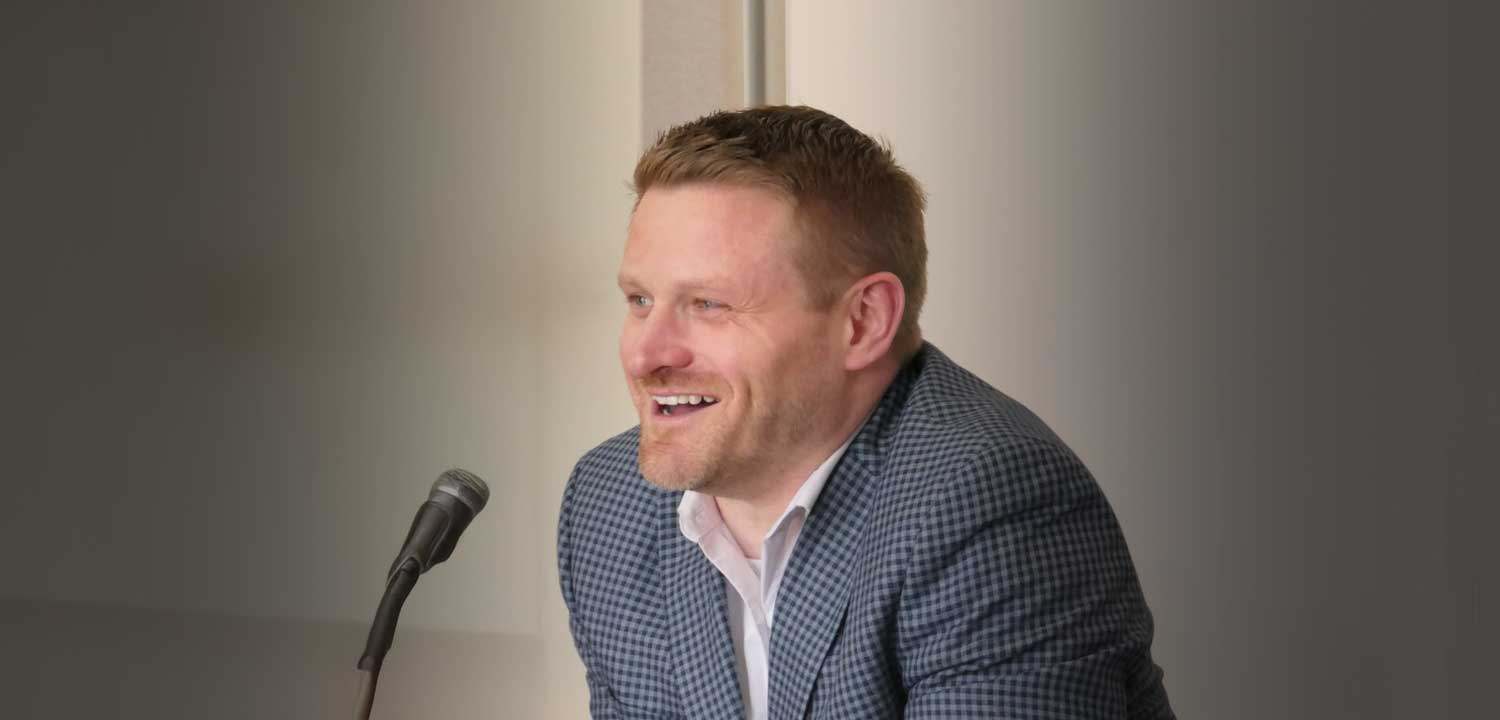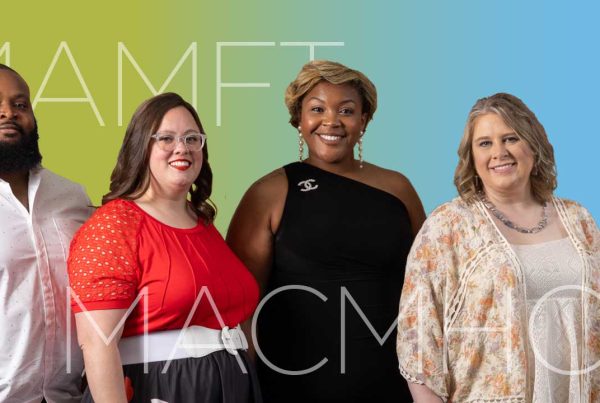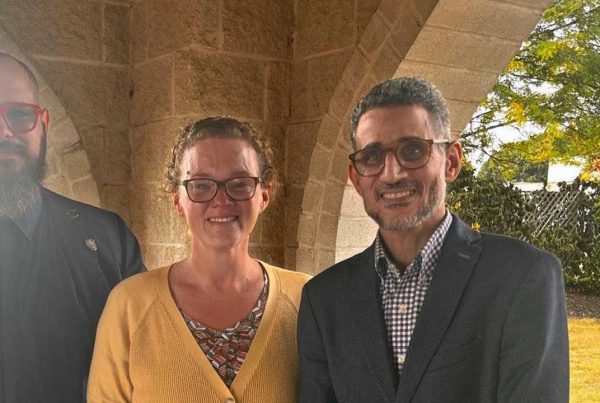The Power of Integrating Spirituality and Therapy in Counseling
In a world that can feel overwhelming, many people turn to counseling not just for emotional support, but to make sense of their lives. That reflection often touches something spiritual, rooted in meaning, connection, or belief. Yet spirituality is too often left out of counseling.
Integrating spirituality and therapy allows counselors to honor the whole person. Healing isn’t just about symptom relief. It’s also about identity, relationships, and transformation. Whether someone is facing grief, trauma, or a crisis of meaning, exploring their spiritual worldview can be essential.
But what does it mean to bring these two areas together, especially given how often spirituality has been used to harm, exclude, or impose belief systems? At Christian Theological Seminary (CTS), we approach what some might call spiritually integrated counseling with humility and care, recognizing the risks of proselytizing, coercion, or assuming shared values. We believe counselors can engage spiritual or existential concerns ethically and inclusively, honoring each client’s experience without judgment or agenda.
That’s the kind of formation students undergo in CTS’s Master of Arts in Clinical Mental Health Counseling (MACMHC) program. Through rigorous training, hands-on experience, and a spiritually inclusive ethos, CTS prepares counselors who are attuned to the realities of both faith and clinical practice.
Interested in becoming a compassionate, spiritually attuned therapist?
Why Spiritually Integrated Counseling Is an Essential Part of the Healing Process
“Spirituality, to me, has to do with the soul — and the soul is Spirit,” said Bryan Votaw, clinic director and clinical supervisor in the post-graduate residency program at CTS. “It encompasses human connectivity — connectivity with the Divine. I think it is a realm that exists if we have both the courage and the openness to invite it to be part of the process.”
Far from a specific set of beliefs, spiritually integrated therapy is about being open to whatever the client brings, whether that’s Christian spirituality, Muslim spirituality, Jewish traditions or existential questioning without religious affiliation. This approach affirms that spirituality is not something reserved for the religious. “Spirituality is part of the internal human makeup,” Votaw says.
Integrating spirituality into counseling allows therapists to explore how belief systems shape identity, values, and healing. Many clients carry deep wounds tied to religion or spiritual communities. Some have experienced harm in religious settings. Others are searching for meaning while feeling disconnected from faith traditions.
“Some people who are trying to deconstruct their religion aren’t trying to abandon spirituality. They’re trying to heal,” Votaw explained. “How do we help them to use what healthy spirituality exists in them? How do we help them identify it so that when they’re deconstructing, they’re not abandoning all aspects of their belief system but rather discerning what aligns with their healing?”
In these moments, spirituality and therapy intersect in ways that can be profoundly life-giving. This is the heart of whole person counseling — seeing the soul, the story and the struggle, not just the diagnosis.
Becoming a Spiritually Inclusive Counselor
Some assume that a master’s in counseling from CTS is similar to a traditional seminary degree focused only on Christian counseling. In reality, CTS’s approach is broader, welcoming students and clients of all faiths — or none at all.
“We integrate spirituality. We’re not doing Christian counseling per se, which is a different modality,” Votaw explained. “We’re not asking you to believe any particular thing. We see you as a person who’s trying to figure your life out — and that’s enough.”
The MACMHC program prepares students to meet people from all walks of life with respect, humility, and a commitment to ethical, inclusive care. It’s about holding space for healing, identity, and meaning, however the client understands them.
“It’s about the transformation and the growth of the clinician — being open to the Ultimate, being open to this ineffable Other that comes and permeates our spaces,” Votaw added.
This openness is what sets spiritually integrated therapy apart from rigid, doctrine-based approaches.
Gaining Real-World Practice Incorporating Spirituality into Therapy
At CTS, you don’t have to wait until graduation to begin making a difference. Through your practicum and internship at the CTS Counseling Center, you’ll work directly with clients navigating grief, trauma, and spiritual uncertainty. You’ll develop the skills to meet people where they are and support them with care and presence.
This hands-on experience helps you embody what it means to offer more than just clinical techniques. You’ll learn to provide care that is thoughtful, grounded, and attuned to each client’s unique experience.
If you feel called to serve in both clinical and spiritual leadership roles, you can also pursue a dual-degree path that pairs the MACMHC with the Master of Divinity (MDiv). This combination prepares you for roles in pastoral counseling, chaplaincy, and ministry-based mental health care — uniting theological depth with advanced clinical training.
Developing Skills for Compassionate Counseling
CTS doesn’t offer a one-size-fits-all approach. Students come from a variety of spiritual and cultural backgrounds — and so do the clients they serve. Whether working with nonbelievers, people of faith, or those carrying spiritual trauma, CTS clinicians are trained to meet each person with openness and respect.
“Sometimes people will come with a lot of background in theology and religious life, and some people have little to none,” Votaw said. “My encouragement to them is, don’t try to know what you don’t know. Just listen. They’re not necessarily talking to you about God. They’re talking about how they understand God, and that tells you something about them.”
This ability to engage without assumptions is a cornerstone of spiritually integrated counseling — and of the MACMHC program. Rather than teaching a fixed set of beliefs, CTS helps students think critically, reflect ethically, and work with complexity. They learn to offer care that is clinically sound, and spiritually inclusive and affirming of each client’s worldview, background, and lived experience.
At its heart, this is more than a counseling degree. It’s an invitation to grow — spiritually, academically, and professionally.
A Seminary Counseling Degree That Offers Healing and Hope
For many clients who enter therapy, hope feels distant if not completely out of reach. They carry stories shaped by loss, disconnection, or spiritual wounding. Creating space for hope, even in its most fragile form, is one of the most sacred responsibilities a counselor can hold.
“I think what is often an overlooked aspect of clinical work is this idea of hope,” said Votaw. “Hope brings people to therapy. But it’s the connection — meaningful, safe, and therapeutic — that helps it take root. When clients are honored and held with dignity, they begin to experience something vastly different than what they carried in.”
At CTS, hope isn’t just a concept. It lives in students who choose this work. And it’s found in clients who walk through the doors of the CTS Counseling Center, searching for light in the darkness.
Spirituality and therapy don’t have to live in separate worlds. When integrated with care, training, and reflection, they become a source of profound healing — for both client and clinician.
Prepare to Be a Spiritually Grounded Counselor
A seminary counseling degree from Christian Theological Seminary is more than academic preparation. It’s a path that equips you to serve with clarity, compassion, and integrity. Through classroom learning, personal reflection, and clinical experience, you’ll gain the skills to support clients with care and respect for their full humanity.
Join the CTS community and see how the MACMHC program prepares you to integrate spirituality and therapy with purpose — and make a lasting impact through your counseling practice.





